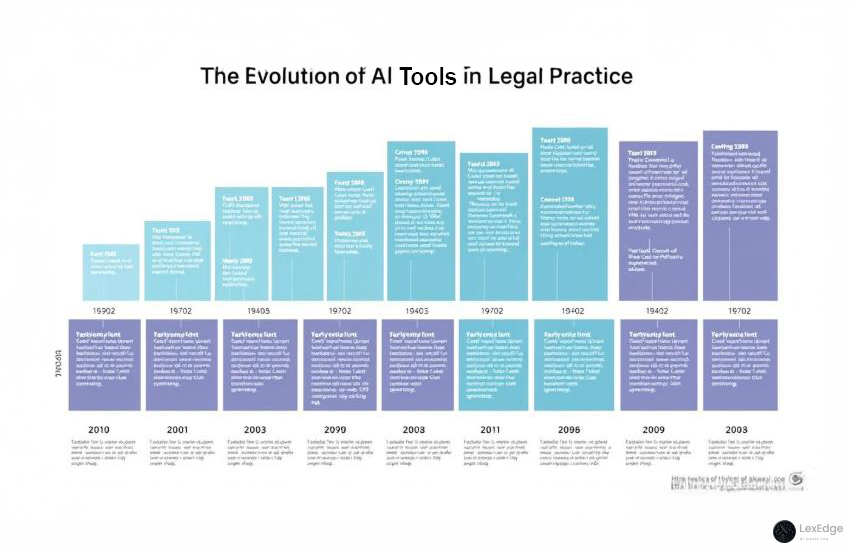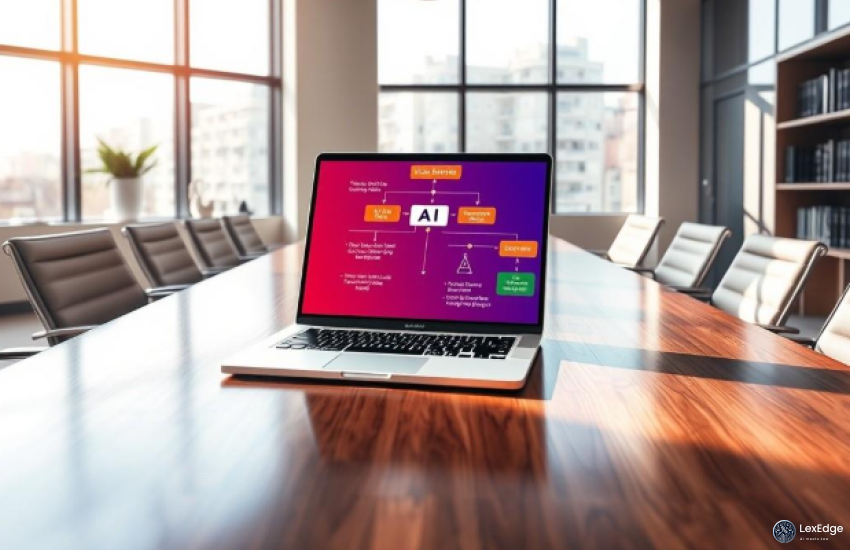Business Applications of AI in Legal Practice: Transforming the Legal Landscape

This blog explores how AI is reshaping the legal industry—from its early use in e-discovery to modern applications like contract automation, litigation predictions, and client communication. It highlights real-world examples, current challenges, and future trends. As AI becomes essential in legal practice, firms must adopt it thoughtfully, combining smart technology with ethical oversight to stay competitive and efficient.
The Roots of AI in Legal Practice

AI first entered the legal field through e-discovery tools, which helped lawyers quickly go through large numbers of documents to find information needed for court cases. These tools showed that AI could work faster and more accurately than doing the same job by hand. This success encouraged more law firms to start using AI.
As the technology improved, AI started doing more than just reviewing documents. It began helping with predicting case outcomes, analyzing contracts, and doing legal research automatically. Big legal tech companies like LexisNexis and Westlaw Edge combined these AI tools into their services, making them a regular part of how law firms work today.
Core Applications and Impact

AI is now used in many parts of legal work, bringing real benefits:
- Legal Research and E-Discovery: AI tools can scan millions of documents in seconds to find important case law and evidence, saving both time and money.
- Contract Review and Drafting: AI helps review and create contracts faster, speeding up deals and helping spot risks early.
- Litigation Strategy and Predictions: AI looks at past case data to predict outcomes and guide legal strategies, giving lawyers a competitive advantage.
- Client Communication: AI chatbots handle client questions and book appointments, so lawyers can focus on more important work.
Real-World Examples

- E-Discovery in Action: Law firms use AI to quickly sort through millions of emails and documents, helping them find important evidence almost instantly.
- Predictive Analytics in Litigation: Lawyers use AI to study patterns in past court decisions and adjust their legal strategies to improve their chances of winning.
- Contract Automation: Companies use AI to check thousands of contracts for compliance, helping them avoid delays and legal issues.
Challenges and Critical Viewpoints

Even though AI has many benefits, it also comes with some challenges in the legal field:
- Accuracy and Reliability: AI can make mistakes or give wrong references, so lawyers still need to double-check the results.
- Ethical and Confidentiality Concerns: Using AI brings up concerns about keeping client information private and secure.
- Professional Responsibility: Lawyers are expected to understand how to use AI properly and follow ethical rules when doing so.
Emerging Trends and the Road Ahead

The future of AI in legal work is changing fast with new innovations:
- Generative AI: Tools that write legal documents and summarize cases are getting smarter and more helpful.
- Business Integration: AI is changing how law firms operate, even affecting how they charge clients.
- More Personal Advice: As AI learns from more data, it will be able to give more personalized and accurate legal guidance.
Conclusion
AI is no longer something from the future—it’s a must-have in today’s legal work. Law firms that use AI can work faster, more accurately, and at a lower cost, helping them meet client needs and stay ahead of the competition. To use AI successfully, firms must focus on using it responsibly, keep learning about it, and always have humans review the results.

